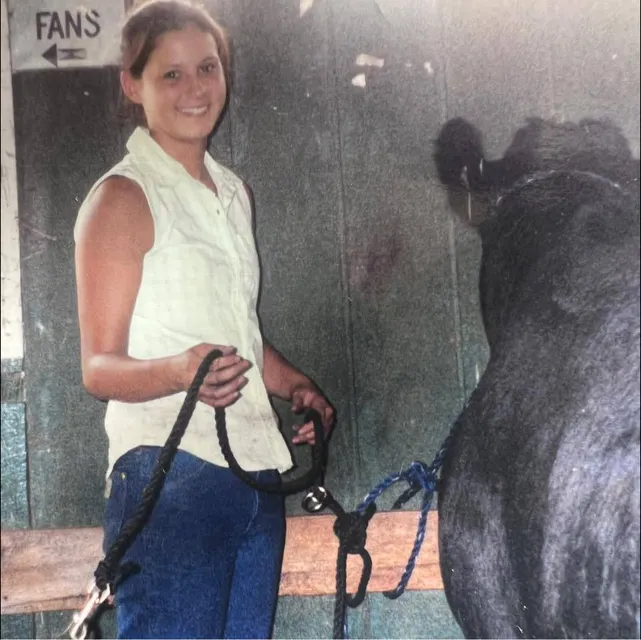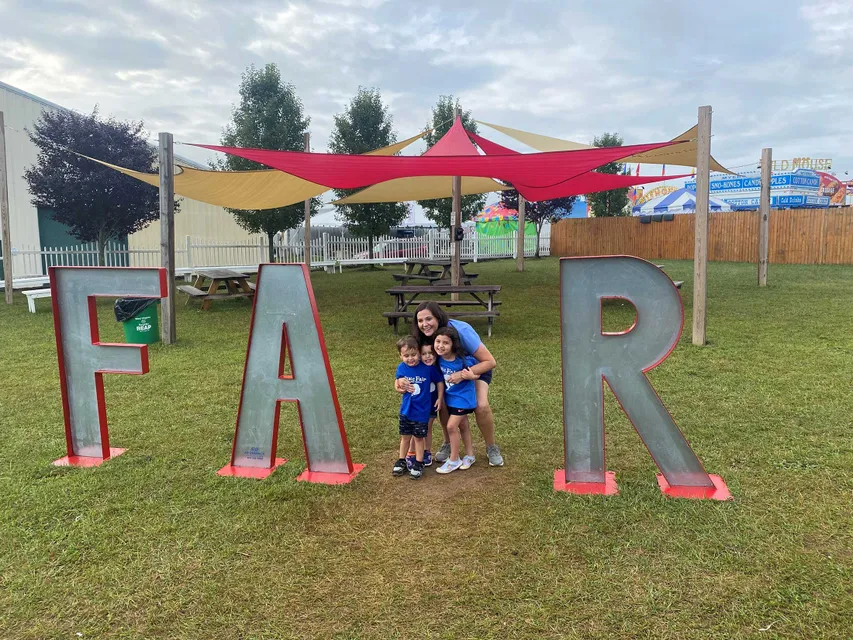It’s been only a decade since Collins took over as the fourth director of the State Fair of West Virginia, but some of those years have been marked by circumstances that could qualify her for a juggling act on the main stage.
On top of being pregnant during two Augusts —one with twins — she’s also been forced to make decisions about how to keep the fair afloat during two years of a global pandemic. Of the lifetime of experiences that prepared her to lead one of the state’s largest and longest events, plus a property that hosts multiple events throughout the year, Collins credits her West Virginia University Sports Communications internship as the one that trained her to meet the day-to-day hiccups and outright emergencies that come with the territory.
Kelly Tuckwiller Collins (’09, ’11, Reed College of Media. Director of the State Fair of West Virginia.
“I can honestly say that the men and women in that office truly helped my career,” Collins said. “I’m somebody who learns by doing and just getting that real-world experience was important.” WVU Sports Communications gave her plenty of that. She covered volleyball, track and field and tennis while also helping with women’s basketball games and home games for basketball and football. But even as she was required to be at football camp, the State Fair of West Virginia was always in the back of her mind.
The longtime 4-H Club member was still active at the fair and being there meant missing an important few days of messaging for the WVU football team. The communications team extracted a price for her absence — Ben and Ellen’s Donuts, a State Fair favorite. She happily packed those paper bags filled with cinnamon-sugar-coated deliciousness back to Morgantown and into the hands of the team.
Collins had been attending the State Fair since she was a babe in arms, and at 12 predicted her future career to her dad outside the sheep barn. He offered her fatherly support for her dream, but Collins said she’s not sure he really thought it was a possibility.




